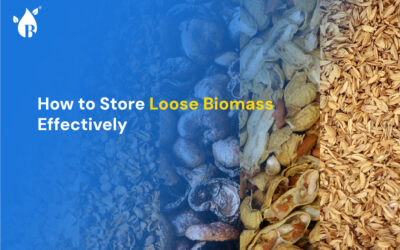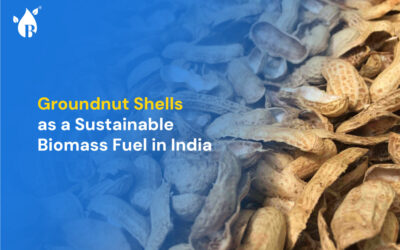
As the world continues to face the challenges of climate change and the depletion of fossil fuel reserves, there is a growing interest in alternative sources of renewable energy. One such promising alternative is biofuels, which are fuels derived from biomass, or organic matter.
Biofuels can be made from a variety of organic materials, including crops, waste materials, and even animal fats. Some of the most common types of biofuels include:
Loose Biomass: Loose biomass are non-compressed organic materials such as wood chips, sawdust, husks, shells, and other plant debris. It is used as a feedstock for energy or biofuel production and electricity generation.
Briquettes: Briquettes are larger cylindrical blocks of various loose biomass briquettes materials. They are created by compressing these materials under high pressure without any binding agents, resulting in a solid, dense product. It can be used for fuel industrial applications such as boilers and power generation.
Pellets: Pellets are small cylindrical or spherical shapes that are made by compressing loose biomass into a compacted form using heat and pressure with the addition of a binding agent. They are commonly used as fuel for heating systems such as boilers.
Biodiesel: Biodiesel is made from vegetable oils or animal fats, such as used cooking oil or animal tallow. It can be used as a replacement for diesel fuel in vehicles or as a heating oil.
Bioethanol: Ethanol is a type of alcohol that is produced from the fermentation of sugars found in crops such as corn, sugarcane, and wheat. It can be used as a fuel for vehicles in its pure form or blended with gasoline to reduce emissions.
Plastic Oil: Waste plastic oil is created when scrap plastics are collected and sorted for reuse through the pyrolysis process. This oil is substituted in place of LDO boilers as industrial fuel.
Tyre Oil: Tyre oil is generated from waste tyres via pyrolysis method. Tyre oil has several applications, typically, as a fuel for heavy industries.
Biogas: Biogas is produced by the breakdown of organic matter, such as agricultural waste or sewage, in the absence of oxygen. It can be used as a fuel for heating or electricity generation.
There are various other source materials like algae, seaweed, and even municipal plastic waste are nowadays utilized to produce biofuel based energy such as green hydrogen, biodiesel, and Bio-CNG. And, the technologies to convert such waste-into-energy are constantly thriving and emerging at a fast pace due to soaring climate change threats.



